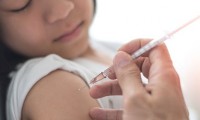-
Novartis bags EU, UK licences for MS therapy Kesimpta
- Source: drugdu
- 161
- April 8, 2021
-
Novartis UK signs digital partnership with Cievert for chronic disease management 29th March 2021
- Source: drugdu
- 301
- March 29, 2021
-
UK approval for Daiichi Sankyo’s cholesterol-lowering treatments
- Source: drugdu
- 212
- March 19, 2021
-
Tribunal upholds CMA’s decision to fine Lexon £1.2m
- Source: drugdu
- 204
- March 1, 2021
-
New social media campaign launched to support COVID-19 vaccine roll-out in the UK
- Source: drugdu
- 370
- February 23, 2021
-
Research finds decrease in radiotherapy treatments due to COVID-19
- Source: drugdu
- 239
- January 28, 2021
-
Hopes rise for approval of coronavirus vaccine by end of year
- Source: drugdu
- 220
- October 27, 2020
-
System C Signs Contract to Offer Pooled Child Health Record in South West England
- Source: DigitalHealth
- 755
- July 29, 2018
-
HPV Vaccination for Both Girls & Boys
- Source: PharmaTimes
- 677
- July 26, 2018
your submission has already been received.
OK
Subscribe
Please enter a valid Email address!
Submit
The most relevant industry news & insight will be sent to you every two weeks.













